Introduction
Duck eggs, often overshadowed by their chicken counterparts, offer a unique culinary experience that is both rich and decadent. With their larger size, thicker shells, and creamier yolks, duck eggs are a delightful addition to any foodie’s repertoire. Whether you’re an adventurous chef or a home cook looking to elevate your dishes, exploring the best ways to enjoy duck eggs can open up a world of flavors and textures. This article delves into the myriad of culinary techniques and recipes that highlight the distinctive qualities of duck eggs, ensuring that every bite is a delightful surprise.
Understanding Duck Eggs: A Culinary Primer
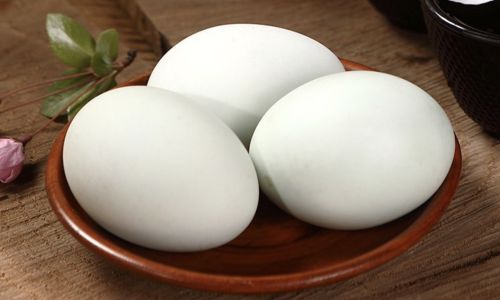
Before diving into the various preparations, it’s essential to understand what sets duck eggs apart. Compared to chicken eggs, duck eggs have a larger yolk-to-white ratio, making them ideal for dishes where a richer, creamier texture is desired. The yolks are also darker and more flavorful, adding depth to any dish they’re incorporated into. Furthermore, duck eggs have a higher fat content, which contributes to their luxurious mouthfeel.
When purchasing duck eggs, look for those sourced from reputable farms that prioritize the well-being of the ducks. Freshness is key, as with any egg, and duck eggs should be stored in a cool, dry place and used within a few weeks of purchase for optimal flavor and texture.
Boiled and Soft-Boiled Duck Eggs: A Classic Start
One of the simplest yet most rewarding ways to enjoy duck eggs is by boiling them. The larger size of duck eggs means that even a soft-boiled version yields a generously sized, creamy yolk that’s perfect for dipping toast or soldiers.
Perfect Soft-Boiled Duck Eggs:
- Preparation: Start with fresh duck eggs at room temperature. Fill a pot with water and bring it to a gentle simmer.
- Timing: Carefully place the eggs in the water using a spoon to avoid cracking the shells. For soft-boiled duck eggs, aim for a cooking time of around 6-7 minutes. This will yield a runny yolk with a just-set whites.
- Cooling: Once the timer goes off, immediately remove the eggs and place them in an ice water bath to stop the cooking process. Peel and serve while hot.
For a harder-boiled version, increase the cooking time to 9-10 minutes. The result will be a fully set yolk with a creamy texture that’s still distinct from chicken eggs.
Poached Duck Eggs: Elevating Breakfast and Brunch
Poached duck eggs are a staple in many gourmet breakfasts and brunches. The gentle cooking method preserves the delicate texture of the yolk, making it perfect for topping salads, avocado toast, or English muffins.
Mastering the Art of Poaching Duck Eggs:
- Water Preparation: Bring a pot of water to a simmer and add a splash of vinegar to help the eggs hold their shape.
- Cracking the Egg: Crack the duck egg into a small bowl or ramekin. This makes it easier to slide the egg into the water without breaking the yolk.
- Gentle Cooking: Create a gentle whirlpool in the water using a spoon and carefully slide the egg into the center. Cook for about 3-4 minutes for a runny yolk or 5-6 minutes for a firmer yolk.
- Removing the Egg: Use a slotted spoon to lift the egg out of the water and let it drain on a paper towel before serving.
Scrambled Duck Eggs: Creaminess Redefined
Scrambled duck eggs are a revelation. The rich, creamy yolks transform into a luxurious, velvety scramble that’s impossible to resist.
Creating Perfect Scrambled Duck Eggs:
- Whisking: Beat the duck eggs lightly with a fork or whisk. You can add a splash of cream or milk for extra richness, but it’s optional given the eggs’ natural creaminess.
- Cooking: Heat a non-stick skillet over medium-low heat and add a small amount of butter or olive oil. Pour in the beaten eggs and let them sit for a moment to begin setting at the edges.
- Gentle Stirring: Use a spatula to gently stir the eggs, pushing them from the edges toward the center. Continue to cook and stir until the eggs reach your desired consistency. Remember, duck eggs cook faster due to their higher fat content, so keep a close eye on them.
- Seasoning: Season with salt and freshly ground black pepper to taste. A sprinkle of fresh herbs like chives or parsley can elevate the dish further.
Duck Egg Omelettes: A Flavorful Twist
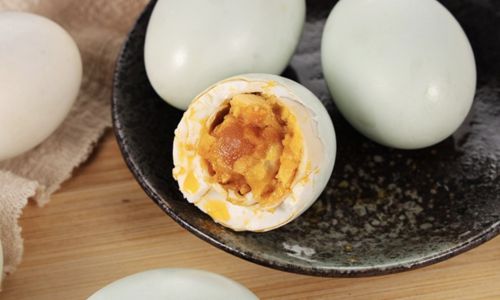
Omelettes are a versatile dish that can be customized with various fillings. Using duck eggs adds a layer of richness and depth that’s hard to resist.
Crafting a Delicious Duck Egg Omelette:
- Prepping the Filling: Choose your favorite fillings such as cheese, mushrooms, spinach, ham, or a combination of your liking. Sautée vegetables or cook meats beforehand if needed.
- Making the Base: Beat 2-3 duck eggs lightly with a fork and pour into a hot, greased skillet over medium heat.
- Cooking the Omelette: Let the eggs cook undisturbed until the edges begin to set. Gently lift the edges and tilt the pan to allow the uncooked eggs to flow underneath.
- Adding Fillings: Once the omelette is mostly set but still slightly runny on top, sprinkle your chosen fillings over one half.
- Folding and Finishing: Fold the omelette in half and cook for another minute or until the cheese is melted and the eggs are fully cooked. Slide onto a plate and serve immediately.
Duck Egg Fried Rice: A Comforting Delight
Fried rice is a classic comfort food that benefits greatly from the addition of duck eggs. The creamy yolks and rich flavor infuse every grain of rice, creating a dish that’s both satisfying and indulgent.
Making Duck Egg Fried Rice:
- Preparing the Rice: Use leftover rice that’s been chilled in the refrigerator. This helps to firm up the grains, making them perfect for frying.
- Sautéeing Aromatics: Heat a tablespoon of oil in a wok or large skillet over medium-high heat. Add chopped garlic, ginger, and scallions, and sautée until fragrant.
- Cooking the Duck Eggs: Push the aromatics to the side of the wok and pour in beaten duck eggs. Scramble them lightly until just set.
- Adding Rice and Seasonings: Stir in the chilled rice, breaking up any clumps. Add soy sauce, oyster sauce, and a pinch of white pepper to taste. Mix well to combine.
- Adding Vegetables and Protein: If desired, incorporate vegetables like peas, carrots, and bell peppers, as well as additional protein like shrimp, chicken, or pork. Cook until heated through.
- Finishing: Garnish with chopped green onions and a drizzle of sesame oil before serving.
Duck Egg Pasta: A Creamy Indulgence
Duck eggs can transform a simple pasta dish into a luxurious meal. Their creamy yolks and rich flavor make an excellent base for a creamy sauce that’s sure to impress.
Creating Duck Egg Pasta:
- Cooking the Pasta: Cook your favorite pasta al dente according to package instructions. Reserve a cup of pasta water before draining.
- Making the Sauce: In the same pot or a large skillet, melt butter over medium heat. Add minced garlic and sautée until fragrant.
- Incorporating Duck Eggs: Gradually whisk in beaten duck eggs, one at a time, stirring constantly to create a creamy sauce. If the sauce becomes too thick, add a little reserved pasta water to reach your desired consistency.
- Combining Ingredients: Add the drained pasta to the sauce, tossing to coat each strand evenly. Season with salt, freshly ground black pepper, and a pinch of nutmeg for added depth.
- Garnishing: Finish with freshly grated Parmesan cheese and a sprinkle of chopped fresh parsley before serving.
Duck Egg Desserts: Sweet Surprises
Duck eggs’ creamy texture and rich flavor aren’t just limited to savory dishes. They can also be used to create decadent desserts that are sure to delight your taste buds.
Duck Egg Custard:
- Mixing Ingredients: In a mixing bowl, whisk together duck egg yolks, sugar, and a splash of vanilla extract. Gradually add milk or heavy cream, stirring constantly to avoid lumps.
- Cooking: Pour the mixture into a saucepan and cook over low heat, stirring constantly until it thickens to a custard consistency. Be careful not to let it boil.
- Baking: Pour the custard into a baking dish and place it in a water bath. Bake in a preheated oven at 325°F (163°C) for about 30-40 minutes or until set.
- Cooling and Serving: Let the
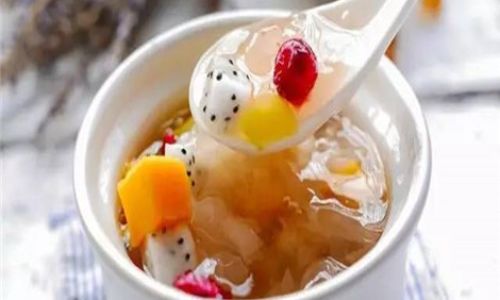
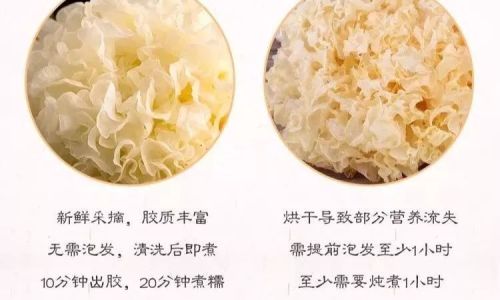
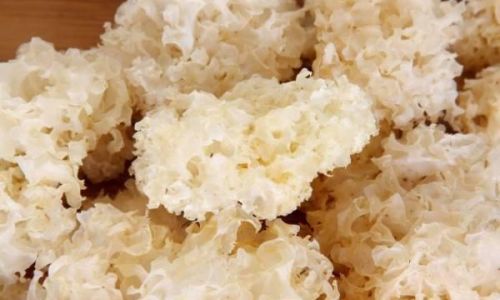
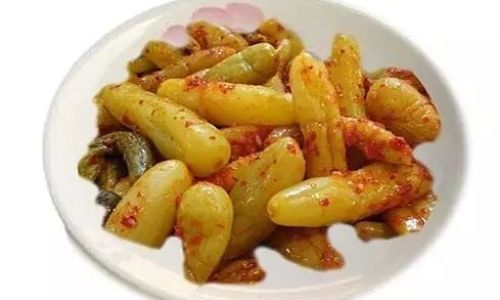

0 comments